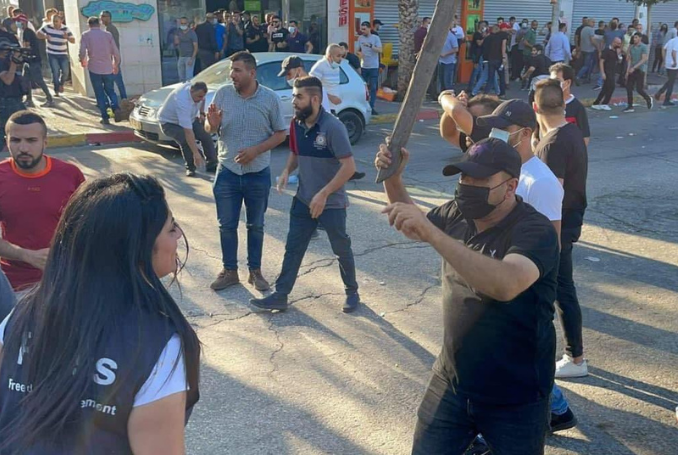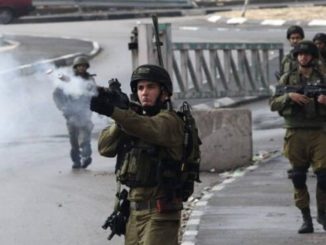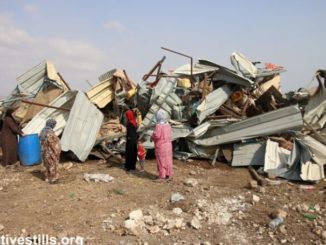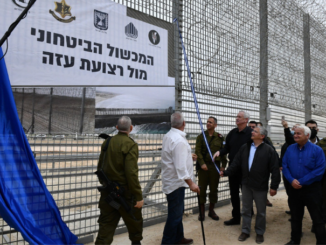
By Ramona Wadi
The Palestinian Authority might not have envisaged that the killing of Nizar Banat by its security services would have unleashed such a response from the Palestinian people. Ongoing demonstrations and calls for PA leader Mahmoud Abbas to step down have been met with further violence by the security forces, and the Palestinian leadership is showing no sign of quitting.
The possibility of an upsurge in demonstrations once the commission of inquiry into Banat’s killing is made public has set out the PA’s strategy: respond to the legitimate demands of the Palestinian people with violence. The PA’s Justice Minister, Mohammed Al-Shalaldeh, declared Banat’s death to be “unnatural” and acknowledged that physical violence had been meted out against him, but he concluded that the cause of death was “neurological shock, which resulted in acute heart and pulmonary failure.” Banat’s death, Al-Shalaldeh added, “was an exceptional case and not part of a pattern carried out by the PA against its critics.”
Reports that the PA requested additional riot gear from Israel suggest otherwise, and testify to the escalating violence ordered by the Palestinian leadership. Given that the PA is unable to obtain weapons without security coordination with Israel, it is no wonder that Abbas considers such collaboration to be “sacred”.
Eliminating opponents in such an overt manner may not have been the PA’s modus operandi until now, but the Palestinian leadership has silenced its critics, and in several ways. What is most telling about the recent killing is that the PA is exhibiting no understanding of the legitimate political demands of the people of Palestine, and has opted, instead, to turn to additional violence to clamp down on collective dissent.
For people to demand answers of their government, particularly when the leadership’s mandate has long expired, as Abbas’s has, is both reasonable and expected. That Palestinians demand Abbas’s resignation is long overdue. Fuelled by the killing of an activist, the demand gains urgency, for, despite the PA’s justice minister dismissing the killing as a rare occurrence, the fact remains that a critic of the PA died within two hours of his arrest by the security services, and such a fate could have been anyone’s. Moreover, the PA’s security services have established torture against detained Palestinians as a routine procedure.
To achieve its aim of quashing dissent, security coordination with Israel is paramount. The PA is not interested in accountability for a crime that should not have happened; it is only concerned with establishing the path of violence, ostensibly as a deterrent against dissent. But threats only work when there is fear, and the losses incurred by the Palestinian people since the Nakba may, in time, ignite further dissent against a leadership with neither vision nor legitimacy.
The PA is not concerned about a long-term perception or strategy. It is seeking to control the immediate outburst, at a time when blunt answers are a necessity in its twisted logic. Banat was killed for voicing what many Palestinians have thought but not articulated publicly. Asking Israel for help through security coordination is one of the PA’s worst moves yet. It does, however, expose a truth that the PA would prefer to keep hidden: in the absence of legitimacy, it has nothing left but tyranny.
– Ramona Wadi is a staff writer for Middle East Monitor, where this article was originally published. She contributed this article to the Palestine Chronicle.







